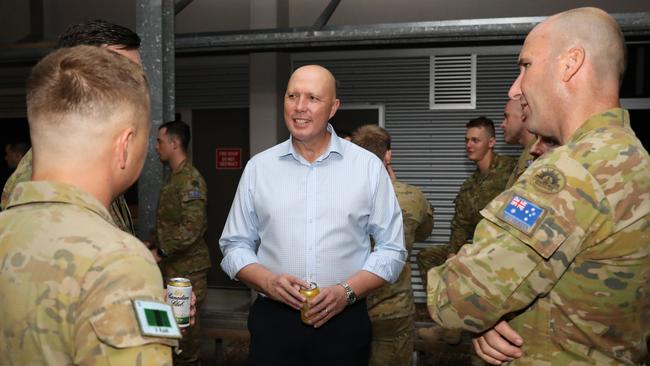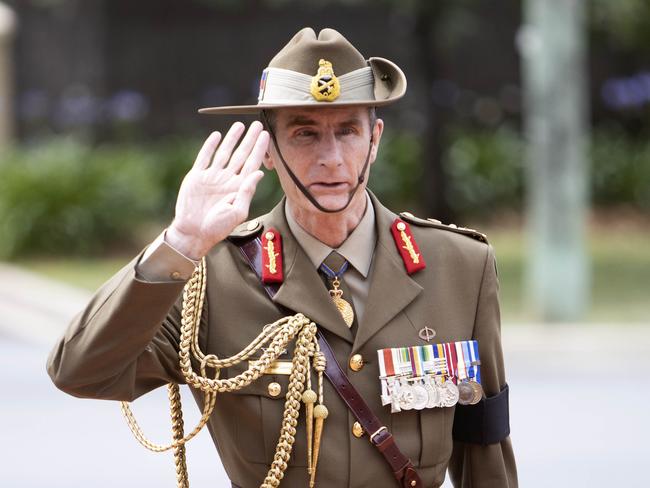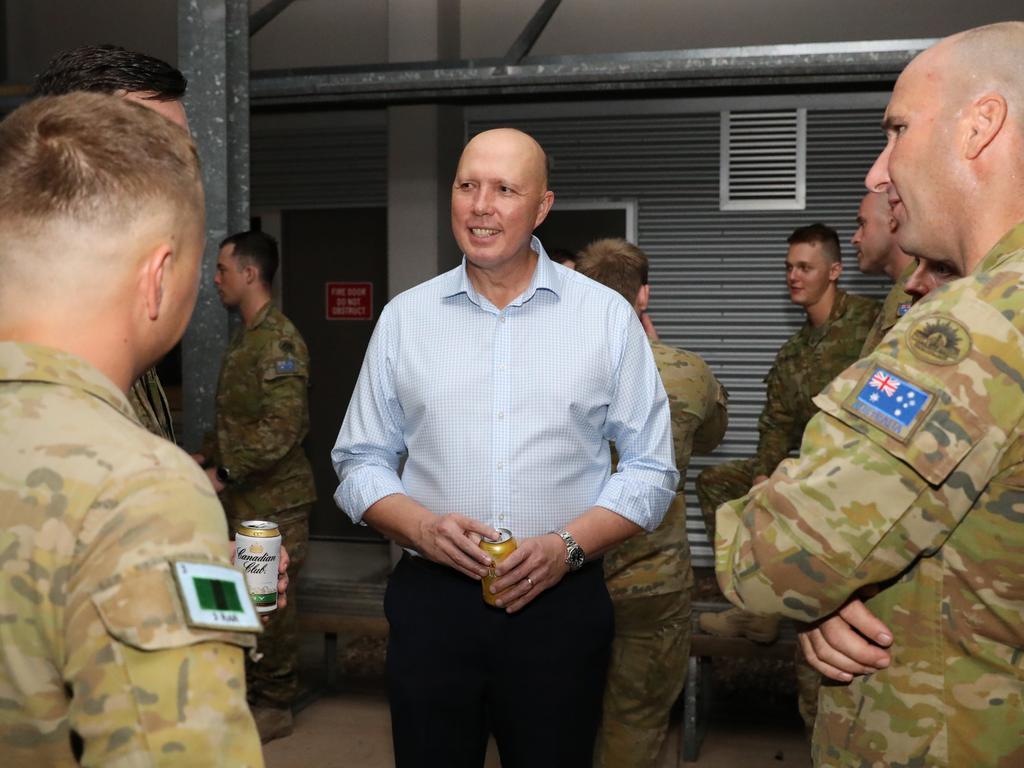
The allegations made in the Brereton inquiry were not tested in court before Chief of the Defence Force Angus Campbell recommended the revocation of Meritorious Unit Citations.
About 3000 personnel stood to lose honours in a foul game of guilt by association. The charge of collective guilt was an outrage against military personnel, and last week Defence Minister Peter Dutton overturned the decision.
Almost 40,000 Australians served in Iraq and Afghanistan. As Dutton put it, 99 per cent of ADF personnel have served and continue to serve the nation with distinction. Anzac Day originally commemorated the Australians and New Zealanders who fought in World War I, but it has become a day of national pride in all our fighting forces. It is right and just that the innocent men and women of valour who were held up as examples of war criminals should be publicly honoured. This weekend, we honour them.
In recent years, there have been successive attempts to discredit the Western military by bringing our elite forces into disrepute. Historically, such efforts have been part of counterintelligence campaigns where the twin purpose was to turn public opinion against Western military operations and weaken defence forces by demoralising troops.
The most striking example was during the Vietnam War. Australians protested against the war en masse and members of the public spat on soldiers returning home. Decades later, the bullying behaviour of the Chinese Communist Party reminds us why the battle against communism is worth the fight.

The chief allegation of the Brereton report is that a small number of soldiers were involved in the unlawful killings of 39 people. If proven true, the acts are barbaric and constitute grave war crimes. Soldiers responsible should face justice. There is never a case for intentionally harming innocent civilians, and the Islamist terrorist groups that stalk the Middle East count among the world’s worst offenders. At worst, a small number of our forces were involved in the killing of 39 people. Every one of those lives counts and we are ready to hold any guilty parties accountable.
In the context of Afghanistan, however, the breadth of cruelty pales in comparison with that of the enemy force. According to the UN Assistance Mission in Afghanistan, the Taliban was responsible for 1348 civilian deaths in 2018 and 1301 in 2019.
One of the more concerning trends in the theatre of war is the pursuit of Western troops on false allegations of war crimes by those seeking financial reward. In the UK, human rights lawyer Phil Shiner accused soldiers of committing war crimes in Iraq in 2004. He had been named human rights lawyer of the year in 2004, and in 2007 the Law Society named him solicitor of the year. His allegations were run on the BBC. Elite forces were smeared as war criminals. An inquiry later found the allegations were baseless. Shiner had paid an Iraqi middleman to solicit claimants who stood to benefit financially if damages were awarded. He had served as vice-president of the Haldane Society of Socialist Lawyers. The Solicitors Disciplinary Tribunal described his war crimes allegations as a campaign characterised by “deliberate lies, reckless speculations and ingrained hostility towards the UK”.
The Brereton report featured heavily redacted accounts of alleged war crimes, some of which failed to meet the evidentiary standard required for prosecution. Yet it concluded compensation should be awarded: “The inquiry does not consider that (compensation) should be contingent on establishing criminal liability. Firstly, that may take a long time … Secondly, there may well be cases in which, though a non-combatant has been killed, a prosecution fails to establish the requisite intent … While acting on the basis of the … findings … may result in some receiving compensation who should not, on balance that risk is justified.” It is an unacceptable recommendation and, in my view, raises serious questions about the impartiality of the inquiry process.
Many members of the ADF came forward to expose alleged abuses of power in war. Yet, rather than acknowledge the integrity of the defence personnel, the chattering classes rushed to condemn military culture. The use of collective guilt became commonplace as progressives opined that warrior culture was to blame for the sins of the few. Warrior culture is indispensable to military prowess and the will to win in war. Defence personnel schooled in equal opportunity and safe workplace skills are a good cultural fit for Canberra, but bureaucrats cannot replace elite forces in battle.
When cancel culture crept into the ranks of the military bureaucracy, Australians were made aware how dangerous it had become. For those who wielded the Brereton report as a weapon to demoralise our fighting forces, the end game is sure to disappoint. The charge of collective guilt broke the spirit of soldiers and left many families in despair, but provoked a public backlash so fierce that false accusers were forced to retreat. The Anzac spirit soared. Long may it be so.





One of the most despicable acts in Australian military history was to dishonour soldiers who fought to liberate Afghanistan from the terror of the Taliban. The purportedly dishonourable conduct was to serve in Australia’s longest war in a force of more than 26,000 soldiers, 25 of whom were accused of involvement in the allegedly unlawful killing of 39 people.